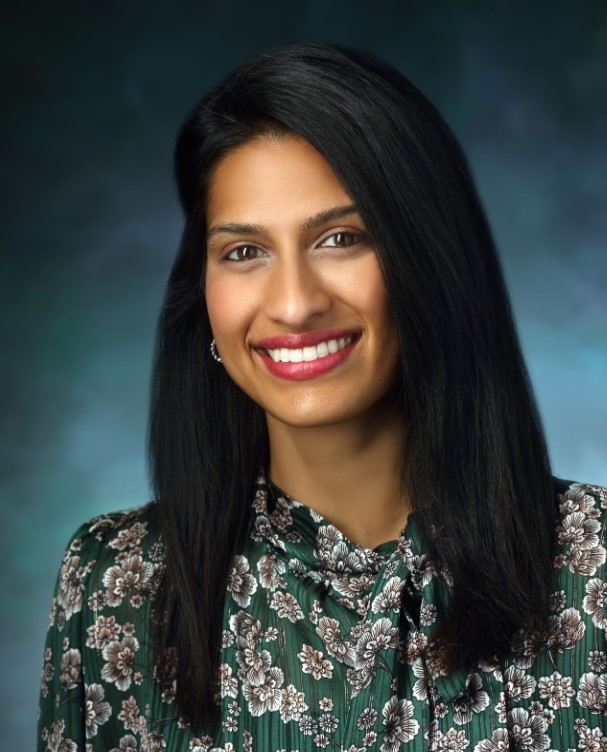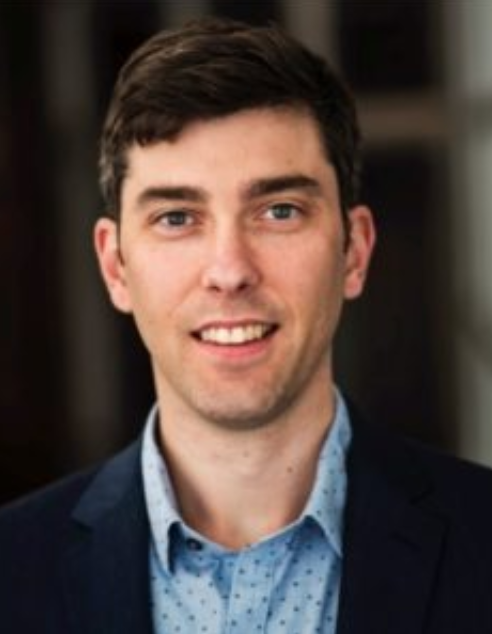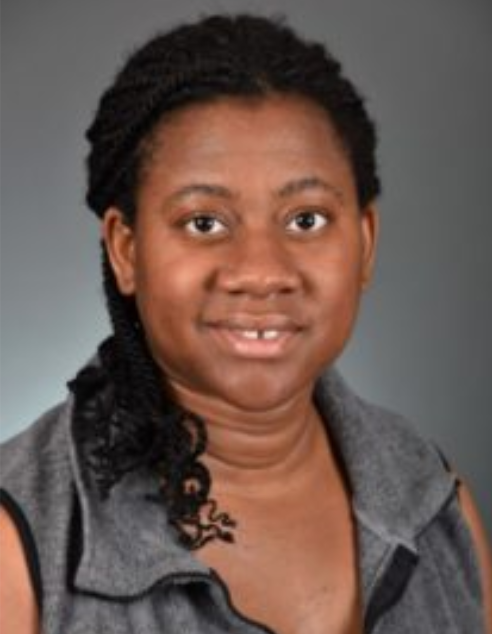2021 Cohort of HGHI Burke Global Health Fellows

Kavitha Ranganathan
MD
“The Burke Global Health Fellowship is critical for my development as a surgeon-scientist focused on understanding why people become poor as a result of surgery. With this support, I will be able to evaluate both short and long-term outcomes among trauma patients to define the impact that out-of-pocket costs can have on social determinants of health and clinical outcomes in the setting of surgical disease processes. This funding will allow me to translate these initial findings into intervention-based studies in the future.”
– Kavitha Ranganathan
Dr. Kavitha Ranganathan is Assistant Professor of Surgery at Harvard Medical School and Director of Craniofacial Reconstruction within the Division of Plastic and Reconstructive Surgery at Brigham and Women’s Hospital. She is also part of the Center for Surgery and Public Health and Program of Global Surgery and Social Change. Dr. Ranganathan attended Northwestern University as part of the Honors Program in Medical Education for her undergraduate and medical school education. She completed plastic surgery residency at the University of Michigan and craniofacial fellowship at Johns Hopkins. From a clinical perspective, Dr. Ranganathan focuses on trauma and cancer reconstruction. From a research perspective, Dr. Ranganathan is focused on defining the burden of impoverishing expenditures among surgical patients locally and internationally. Her ultimate goal is to design and test interventions to alleviate the burden of impoverishing expenditures due to surgery in low- and middle-income countries.
Project Title: Defining the Impact of Trauma on Social Determinants of Health: Unintended Costs and Consequences
Project Description: Every year over 150 million people are impoverished as a result of medical expenses. While the World Health Organization, World Bank, and United Nations have uniformly championed the importance of financial risk protection against the cost of illness, little is known regarding the magnitude of out-of-pocket expenses in the context of surgical care. In India specifically, over 1.2 million people sustain burn and trauma-related injuries each year, with over 700,000 requiring hospital-based interventions. The magnitude of out-of-pocket expenses from direct (medical expenses), direct non-medical (food, transportation, lodging), and indirect (lost wages) sources remains unclear. In this study, we will define the burden of out-of-pocket expenditures among trauma patients with the goal of developing feasible strategies for financial risk protection in collaboration with the All India Institute of Medical Sciences in New Delhi, India. Our central hypothesis is that trauma patients who incur catastrophic expenditures will not only have worsened health outcomes, but will also suffer from worsened social determinants of health including financial insecurity, food scarcity, education, and unemployment. Specifically, we will evaluate changes over time in household wealth, food scarcity, education, employment, and financial security based on the degree of out-of-pocket expenditures incurred among those presenting for management of trauma and burns in India. The individual-level data collected in this proposal will educate future health financing strategies implemented in the form of randomized controlled trials designed to offset costs from surgical patients to national health plans.

Matthew Gartland
MD
“The Burke Fellowship will be a springboard for my career in global health education, giving me the opportunity to develop an innovative education model and to build my teaching and leadership skills.”
– Matthew Gartland
Matthew Gartland, MD, is the Director of the MGH Asylum Clinic at the MGH Center for Global Health and a faculty member in the MGH for Children Division of Pediatric Global Health. The MGH Asylum Clinic is a volunteer-driven organization whose mission is to perform forensic medical and psychological evaluations for survivors of persecution and torture seeking asylum in the United States. Dr. Gartland’s academic interests include multidisciplinary medical education, trauma-informed care, and health and human rights in detention-settings. Dr. Gartland has worked extensively around the world on projects related to pediatric HIV and primary care in Mexico, Kenya, Zambia, and Liberia. He earned his BA from Harvard College and his MD from Vanderbilt University. He completed residency in Internal Medicine and Pediatrics at Massachusetts General Hospital. Dr. Gartland is a Hospitalist at Brigham and Women’s Hospital and an Instructor at Harvard Medical School.
Project Title: Asylum Medicine: An Advanced Course on Forensic Medical Evaluations
Project Description: In 2017, more than a quarter of a million people applied for asylum in the United States. Asylum may be granted to a person who is unable or unwilling to return to their home country because of a well-founded fear of persecution on the basis of race, religion, nationality, political opinion or membership in a particular social group. Clinicians can play an essential role by performing forensic medical evaluations of asylum seekers to document critical evidence of the physical and psychological harm resulting from past abuse. Non-clinicians also play a key role by leading program development that addresses the unique needs of asylum seekers, including the use of a skilled and sensitive approach that acknowledges asylum seekers’ complex trauma histories. The core skill set needed to perform effective forensic medical evaluations draws from many different disciplines, necessitating collaboration and team-based care.
I will utilize a Participatory Curriculum Development approach to convene a meeting of community stakeholders and to design and implement a multi-disciplinary seminar titled, Forensic Medical Evaluations of Asylum Seekers in the United States: An Advanced Multidisciplinary Course. The target audience of students for the course crosses multiple levels of training including undergraduates, medical students, trainees, and faculty; and multiple disciplines including social work, clinical psychology, human rights, law, and medicine. The course will encourage cross-fertilization of knowledge and experience, an education environment that closely matches the cross-discipline work that takes place in real-world global health projects.

Oludare Odumade
MD, PhD
“The Harvard Global Health Institute Burke Global Health Fellowship is supporting the development and implementation of a collaborative international research surveillance protocol aimed at reducing the global burden of mortality and morbidity in neonatal sepsis due to antibiotic-resistance pathogens in Benin, Nigeria. I am grateful for this opportunity to expand my work as a scientist, a mentor, and a future leader on a global level.”
– Oludare Odumade
Dr. Oludare (Dare) Odumade, MD/PhD, is a clinical instructor and attending physician in the Division of Medical Critical Care Intermediate Care Program at Boston Children’s Hospital and Harvard Medical School in Boston, MA. She received her undergraduate education at Hamline University, Saint Paul, MN, and her medical and graduate degrees at the University of Minnesota Medical Scientist Training Program, Minneapolis, MN. Dr. Odumade began her global infectious diseases research as a Doris Duke Charitable Foundation International Clinical Research Fellow at the Kenya Medical Research Institute (KEMRI) in Kisumu, Kenya. She went on to her pediatric residency at University of California-San Diego, CA, after which she entered the Boston Children’s Hospital (BCH) Global Pediatric Research Fellowship. She then joined the BCH Precision Vaccines Program (PVP), which focuses on the ontogeny of innate and adaptive immunity as it impacts age-specific vaccinology. As a faculty in the PVP, she works on several NIH-funded and philanthropic projects aimed at understanding the immune system and vaccine development. Dr. Odumade’s overall focus involves projects in child and maternal health aimed at understanding, from a global perspective, 1) what causes neonatal sepsis, 2) develop better tools for low-middle income countries to diagnosis sepsis, 3) identify immunological risk factors for developing neonatal sepsis in order to inform novel target of interventions and 4) develop preventative strategies (such as vaccines) and therapeutics targets (i.e. antibiotics that pathogens are susceptible to).
Project Title: CERHI-Benin And BCH-Global Health Collaborative on Translational Research on Pediatric Sepsis (CAB-TRAPS)
Project Description: Infant mortality due to neonatal sepsis remains an important but poorly understood global health burden and neonatal sepsis accounts for approximately 22% of under-5 mortality. The lack of improvement in mortality, in the last two decades, due to neonatal sepsis is multifactorial and includes difficulties in the diagnosis of sepsis, maternal factors such as maternal infection (i.e. chorioamnionitis), infant factors such as increased vulnerabilities due to a distinct neonatal immune system with reduced antibacterial mechanisms, and increased antimicrobial resistance. In low- and middle-income countries (LMICs) such as Nigeria, where the likelihood of death from sepsis is higher; there is a paucity of data on what pathogens cause infection and local or regional antimicrobial resistance patterns (AMRs). This is important because the difference between life and death can simply be the incorrect choice of antibiotics. Hence, there is a need to work with local stakeholders such as epidemiologists, physicians, nurses, assistants, and laboratory staff to characterize local pathogens and local AMR patterns. Secondly, it is important to develop assays to understand the interactions between the immune system and various infections. This project, funded by the Burke Fellowship, will launch a collaborative long-term bi-directional international research surveillance protocol between Boston Children’s Hospital (BCH), Boston, Massachusetts, and the Centre of Excellence in Reproductive Health Innovation (CERHI), Benin City, Nigeria to study neonatal sepsis by characterizing regional AMRs and implementing a pilot lab training protocol based on a prospective maternal-infant cohort from which bio-samples for future down-stream technologically advanced clinical and research platforms are collected and stored. The long-term goal is to build capacity and improve sustainability through research opportunities for trainees including lab-based training and co-writing of both grants and peer-reviewed manuscripts.

John Naslund
PhD
“I am honored to be a recipient of the Burke Fellowship, and to have this exciting opportunity to expand my research in collaboration with Sangath to use widely available digital technology to address stress and to promote mental health and wellbeing among community health workers in rural India. This project represents a critical part of my research and career development, because it will set the stage for supporting the eventual roll out of this scalable digital program in low-resource settings, and is especially timely given the devastating impact of the COVID-19 pandemic across the country, and urgent need to address the resulting psychological distress and elevated risk of burnout among community health workers on the frontlines.”
– John Naslund
Dr. Naslund is Instructor of Global Health and Social Medicine at Harvard Medical School. He holds expertise in psychiatric epidemiology, implementation science, and digital mental health. Dr. Naslund’s scholarship seeks to address early mortality that disproportionately impacts individuals living with serious mental illnesses worldwide, and to reduce the global care gap for mental disorders using novel digital methods. Dr. Naslund has led numerous projects that leverage mobile technologies, social media, and online big data to develop, evaluate, and implement digital interventions aimed at treating and preventing serious mental disorders, and addressing symptoms of mental illness and risk factors for early mortality in young persons living with mental illness. He currently leads the scientific activities of ESSENCE (Enabling Science to Service to ENhance depression CarE), one of ten National Institute of Mental Health funded U19 Scale Up Hubs involving the use of digital technology for scaling up evidence-based mental health interventions delivered by community health workers in the state of Madhya Pradesh, India. Dr. Naslund is also supported by grants from the Brain & Behavior Research Foundation, Grand Challenges Canada, and Wellcome Trust, and has over 120 peer-reviewed publications. Dr. Naslund co-leads the Mental Health for All Lab at Harvard Medical School, and is an Honorary Research Fellow with Sangath, a world leading NGO and research organization based in India. Dr. Naslund has a longstanding track record advocating for the rights, dignity, and quality of healthcare for those living with mental illness.
Project Title: Developing a scalable digital program for stress reduction and mental health promotion for community health workers in rural India
Project Description: Community health workers (CHWs) represent the backbone of most health systems, particularly in low-income and middle-income countries (LMICs), such as India, where they are responsible for delivering essential primary health care services in remote communities and underserved settings. CHWs are now increasingly playing a critical role in efforts to scale up mental health care globally, referred to as task sharing. Despite recent initiatives to strengthen health systems and improve performance of CHWs, through supervision, better training, and improved data collection, one notable gap in the global health literature is the limited attention to the mental health and wellbeing of CHWs themselves. This is a major concern because CHWs in LMICs face high levels of stress, driven by high work demands, low compensation, and facing adversity such as poverty, gender inequality, and being at the bottom of health system power hierarchies. The COVID-19 pandemic has significantly exacerbated risks of psychological distress and burnout among CHWs on the frontlines. It seems intuitive that mentally healthy and motivated CHWs will be better positioned to deliver high quality care to their patients, and as a result, support the successful implementation of mental health care. Our study seeks to address this gap by developing and pilot testing a digital stress reduction and mental health promotion program for CHWs embedded within an ongoing large-scale NIMH U19 implementation project called ESSENCE (Enabling Science to Service to ENhance depression CarE) focused on scaling up mental health services in primary care in rural India. This Burke Fellowship builds on our team’s track record using digital technology for training and supporting CHWs, and will first involve developing a scalable digital stress reduction program for CHWs in rural India by adapting the World Health Organization’s evidence-based Self Help Plus intervention for psychological distress to fit the local context and culture, while digitizing the content so that it is entirely accessible from a smartphone app. Next, we will conduct a pilot study to evaluate the feasibility, acceptability and preliminary effectiveness of the digital stress reduction program for CHWs. Lastly, we will explore whether reducing stress among CHWs may impact their wellbeing and the quality of care they deliver. Our exploratory findings hold promise for offering a scalable approach for reducing stress to support frontline health workers in delivering evidence-based mental health services in low-resource settings. This study could also inform efforts to alleviate the added burden and elevated stress levels and risk of burnout among CHWs in LMICs due to the ongoing response to the COVID-19 pandemic.


